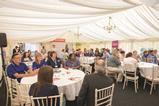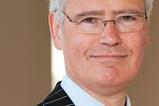Peter Homa captures leadership lessons he learnt in his nearly 40 years NHS leadership experience
Below is a letter to myself, as a 24-year-old NHS graduate management trainee, that has taken almost four decades to write. It captures leadership lessons learnt mostly from my mistakes and working with many outstanding leaders, and a few who were dreadful. I learnt from both. I recently retired as chief executive of Nottingham University Hospitals Trust.
Of my nearly 40 years NHS leadership experience, 27 years were as an NHS chief executive. It’s the best job in the world because one works with dedicated colleagues devoted to caring for patients, their loved ones and staff during the most joyous and difficult times of their lives. I now have the privilege of being the foundation chair at the NHS Leadership Academy.
Originally I wanted to be a pilot but sight loss in one eye made this impossible. I’m so glad that my childhood dream did not happen as I would not have had the privilege to serve the NHS and work with inspiring clinical and non-clinical colleagues, patients and their families; “We live life forwards and understand it backwards.”
This letter is respectfully offered in the hope that it will help you write your own leadership story.
“Dear Me
You cannot lead others well, until you can lead yourself. Be clear about your values. Use them as your lodestone to guide choices and decisions. They are most helpful when navigating times of great ambiguity, uncertainty and challenge.
Understand yourself as a leader. Learn your strengths, weaknesses and the contexts in which you flourish and flounder. Encourage and use constructive critical feedback on your leadership. The question is not if the opportunities for improvement exist but if you choose to take them. Learn what it’s like to be on the receiving end of you. What is your impact on others and how can you improve it? A good definition of leadership development is “learning to be yourself more skillfully”. Keep a diary and include a regular section entitled, “what have I learnt”. Otherwise, you will forget valuable lessons.
Grow your leadership skills through challenging assignments, trusted mentors, observing great and poor leaders and what makes them so. Leadership development should be a lifelong seminar. Big challenges are learning laboratories. Maintain enthusiasm for study, learning new skills and burnish existing ones. This also includes listening. When someone talks to you, stop, engage, empathise and learn. Learn and practice the art and science of service improvement and patient safety including human factors.
You will discover that these can replace despair with joy and relight the lamp of hope for many, including you. A good question to ask when improving a service is “If this service didn’t exist, how would we create it?” There is magic in the pursuit of bold, audacious objectives in service of patients, their loved ones and staff. Often, it’s only when we pursue radical, seemingly outrageous goals that we discover dramatically better ways to care for those we serve. The NHS Leadership Academy will provide helpful leadership resources.
Skillful personal energy and time management are essential. They help in tough times. Time is our most precious, nonrenewable resource; use it well. Do less, more thoroughly. Making time for loved ones, exercise, reading, learning, relaxation and other interests is essential. Understand your leading indicators of tiredness and stress and take corrective action. Do not leave this until too late.
New year is a good time to refresh professional and personal development plans and goals. Development plans should nourish your “mind, body and soul”, however you define them. The aphorism, “…if you don’t know where you are going, you might end up somewhere else…” applies to personal as well as professional development.
You will face many leadership challenges and how you respond creates your personal brand and legacy. Make sure you choose who you work for, far more carefully than they select you. In jobs, you entrust your present and much of your future to your boss and their organisation. Choose wisely. Make sure that those you work for share your values. Avoid “taxi cab” relationships with organisations; short, intense and expensive. Leadership requires high levels of trust and cannot be made like instant coffee. Trust requires time and can be created through shared adversity.
Work in high-performing teams is an exhilarating experience. Understand your behavioural preferences in teams and how, with others, extraordinary results can be achieved. High performance teams include individuals with relevant skills, experience, trust, inclusivity in which diversity is treasured, shared values and objectives, passion, honesty, good humour creating high levels of psychological safety. Team members are encouraged to express concerns so that the team can provide support. Asking for help is a sign of strength not weakness. Do not forget this!
Invite others to spend time with you and learn about your work and do the same with them. You will learn how others face challenges and grow your social network.
You will get things wrong and fail. Failure is another way to learn. You will learn more from your failures than successes. Ensure the positive impact of learning from what went wrong is greater than the impact of what went wrong. During challenging times, others will regard you as the banker of hope, even when you may feel hopeless. Be a leader in openness. Acknowledge failure, when it occurs, and do what needs to be done to prevent repetition. How you conduct yourself and lead when things go wrong is your leadership signature. Such times can be painful and your leadership growth is positively correlated to your discomfort. Without dark moments in your career, you will not appreciate those in the sun. In the words of philosophers, Friedrich Nietzsche and Kelly Clarkson, “What doesn’t kill you makes you stronger…”.
When dealing with failure, manage your response as a necessary past condition of the future that you want to create. Always be authentic; you cannot, after all, fake it! Behave consistently with your values and, when events are retrospectively examined, you won’t disappoint nor be disappointed.
When facing tough decisions make sure that your heart and head align. Learn to trust your instinct and intuition even if they are at odds with conventional wisdom. Remember Karl Popper’s law of disconfirmation.
From your mistakes, you will learn the power of the truism, “if something seems too good to be true, it probably is…”.
Always do what is right for patients and staff. Avoid short-term answers to long-term questions. Understand the politics of a situation and how short and long-term solutions can be blended.
Aim to recruit people more able than yourself and help them excel. Delegate to others to the point where it feels uncomfortable. Those to whom you delegate will grow providing you create a supportive environment. You remain accountable. Always develop others including when the time comes for them to go onto more senior jobs outside your organisation. Not only is this right, it will become known, and will attract future high quality applicants to join your team.
Focus on staff engagement. CEO, as the remarkable Sarah-Jane Marsh will teach you, stands for “chief engagement officer”. Staff that feel supported, with shared purpose, appreciated and appropriately challenged will do great work. Learn the joys and frustrations of staff and build the former and reduce the latter.
Every day you can enrich the lives of others including through a smile, conversation, acts of kindness and consideration. Treasure these. Jaworski (1996) calls these, “cubic centimetres of chance”. Over your lifetime, through these, you will change the world more than you will know. You will not remember all these “centimetres of chance”. However, beneficiaries will likely never forget them.
The attached desert island reading list will provide joy, hope and insights.
Finally, be gentle on yourself. You are your toughest critic. Care for yourself as you try to care for others.
Go boldly, go well and have a great life.
Yours sincerely
Me
Desert island reading list:
Bennis, W. (1995), On becoming a leader
Faulks, S. (1993), Birdsong
Gawande, A. (2014), Being Mortal
Hammer, M. and Champy, J. (1993), Re-engineering the corporation: a manifesto for business revolution
Jaworski, J. (1996), Synchronicity
McGrinty, R. (2017), Electric Souk
McEwan, I. (2012), Sweet Tooth
Popper, K. (1959), The Logic of Scientific Discovery
Sobel, D. (1995), Longitude
Syed, M. (2015), Blackbox Thinking
Timms, H. and Heimans, J. (2018), New Power
Yousef, Y. “The all seeing porter” British Geriatrics Society, 20 June 2016
Zeldin, T. (2015), The Hidden Pleasures of Life































3 Readers' comments